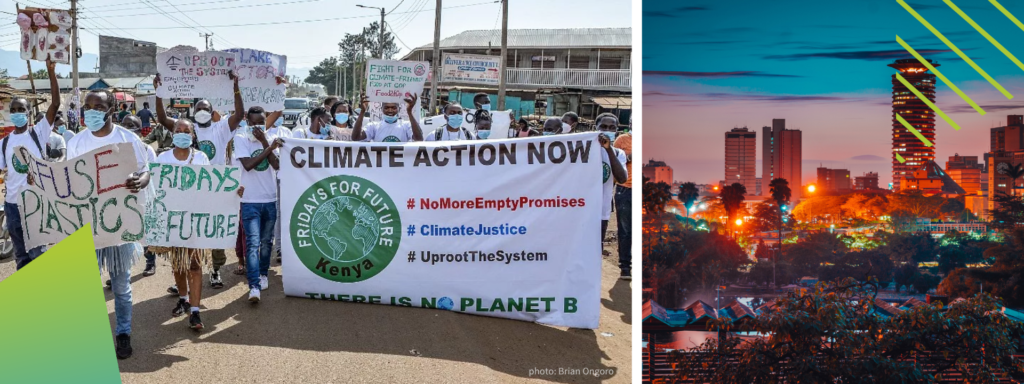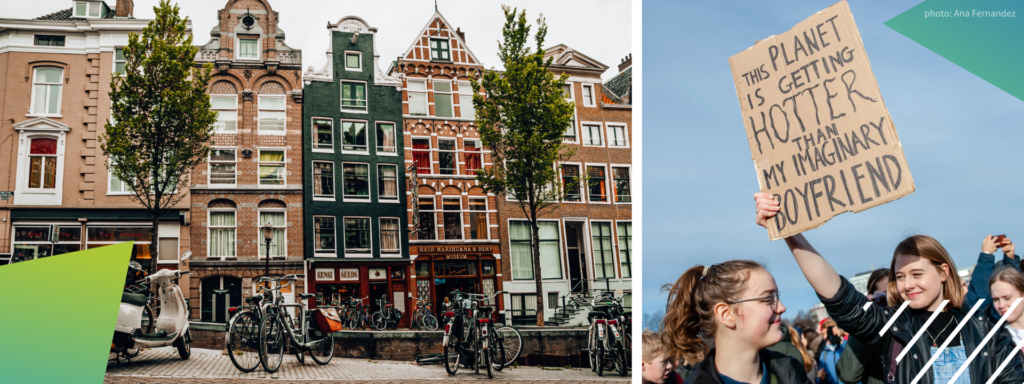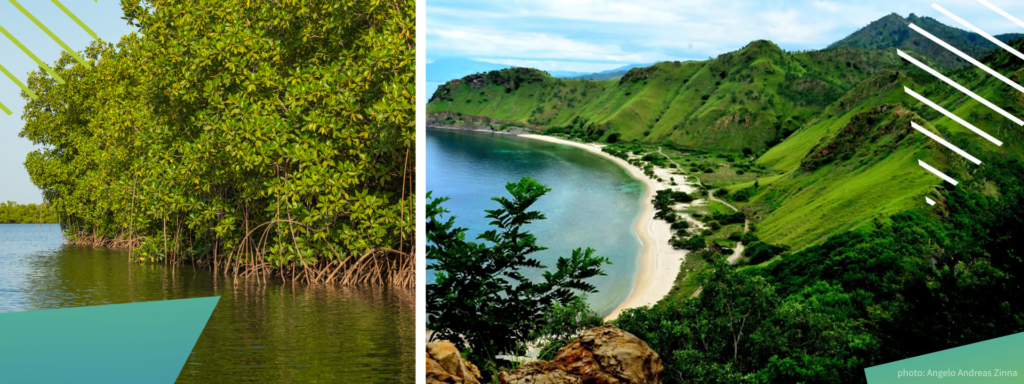On International Youth Day, we are keeping youth in focus.
How four countries engage youth on policy, climate, and energy.
In the face of a rapidly changing climate and the urgent need for a just energy transition, the involvement of youth in decision-making processes has become more critical than ever. Young people, who will inherit the challenges and opportunities of the future, deserve to be recognized as vital stakeholders in shaping the policies and strategies that will define the world they live in.
At Student Energy, we believe that we can always further the just energy transition, and the role youth play in that transition, by pointing to positive examples where we see youth-led change already taking place. This blog explores how four diverse countries—Kenya, Ireland, the Netherlands, and Timor-Leste—are promoting youth involvement in climate and energy issues, reflecting on the unique approaches and common themes that characterize their efforts.
Kenya
Kenya, a country that has faced significant environmental challenges, has been proactive in engaging its youth in climate action and energy transition. The involvement of young people in these areas is seen as crucial not only for addressing current environmental issues but also for ensuring a future that young Kenyans feel they will be adequately represented in.

Youth in Kenya demand stronger action on climate change.
One of the key platforms for youth engagement in Kenya is the Kenya Youth Climate Action Network (KYCN). This network brings together young people from across the country to advocate for climate action and participate in environmental decision-making. KYCN members are involved in policy discussions, climate forums, and environmental campaigns, ensuring that youth voices are heard at both local and national levels. The Youth Congress of Kenya provides another important avenue for youth engagement. This platform gives young people the opportunity to engage with policymakers on various issues, including climate and energy. By amplifying youth voices in national development processes, the Youth Congress plays a vital role in ensuring that the perspectives of young people are included in decision-making.
Kenya has made significant strides in ensuring youth representation in climate policy-making. The National Climate Change Council includes youth representatives, ensuring that the concerns and perspectives of younger generations are considered in national climate policies and strategies. This inclusion is further supported by the Kenya Climate Change Act, 2016, which mandates the participation of marginalized groups, including youth, in climate-related decision-making processes.
Ireland
Ireland, a country with a strong commitment to environmental sustainability, has been at the forefront of involving youth in climate and energy decision-making. Recognizing the importance of youth perspectives, Ireland has implemented a range of initiatives to ensure that young people are active participants in shaping the country’s environmental policies.
One of the key initiatives in Ireland is the National Youth Assembly on Climate, which brings together young people from across the country to discuss climate issues and provide input into national policies. This assembly ensures that youth voices are heard in shaping Ireland’s climate action plans, allowing them to contribute to the country’s response to climate change.

Scenes of Dublin, Ireland and the homepage for Comhairle na nÓg.
Ireland has a strong tradition of supporting youth organizations that focus on climate and energy issues. Comhairle na nÓg, a nationwide initiative, gives young people a voice in the development of local and national policies. Members of Comhairle na nÓg have been involved in discussions on climate action and environmental policies, contributing to the country’s efforts to address climate change.
Youth representation in policy-making is a key priority for Ireland. The country appoints Youth Delegates to the UN, who represent Ireland at international forums such as the UN Climate Change Conference (COP). These delegates ensure that the perspectives of Irish youth are brought to the global stage, advocating for stronger international action on climate change. Ireland’s Climate Change Advisory Council also includes youth representatives, ensuring that the concerns of younger generations are considered in the country’s climate policies. This inclusion is a reflection of Ireland’s commitment to intergenerational equity and the recognition that young people have a vital role to play in shaping the future.
The Netherlands
The Netherlands has taken significant steps to involve youth in the country’s energy transition and climate action. The Dutch government recognizes that young people are essential stakeholders in achieving the country’s sustainability goals and has implemented various initiatives to ensure their active participation. The Youth Climate Summit is one of the key platforms for youth engagement in the Netherlands. This summit brings together young people from across the country to discuss climate challenges and propose solutions. The outcomes of these summits are often presented to government officials and integrated into national climate strategies, ensuring that youth perspectives are considered in decision-making processes.

The Netherlands also appoints Youth Delegates to the UN, who represent the country at international forums such as the UN Climate Change Conferences (COP). These delegates play a crucial role in bringing the perspectives of Dutch youth to global climate negotiations, advocating for stronger international action on climate change. Dutch youth have been actively involved in the drafting of the National Climate Agreement, which outlines the country’s strategy for reducing greenhouse gas emissions by 2030. Youth organizations were consulted during the development of this agreement, ensuring that the perspectives of young people were included in the final policy.
The Dutch Youth Council (NJR) is another important platform for youth engagement in the Netherlands. The NJR represents Dutch youth in various policy discussions, including those related to climate and energy. By collaborating with government agencies, NGOs, and international organizations, the NJR ensures that youth voices are considered in decision-making processes. The Dutch government’s Climate Agreement includes provisions for the participation of young people in its implementation. The agreement recognizes the importance of intergenerational equity and the role of youth in achieving the country’s climate goals. Additionally, the National Youth Policy emphasizes the involvement of youth in all areas of national development, including environmental sustainability and energy.
Timor-Leste
Timor-Leste, a young and developing nation, has been increasingly recognizing the importance of involving youth in decision-making processes related to climate change and energy. While the country is still building its institutional frameworks and capacities, several initiatives have been launched to engage young people in these critical issues. The National Youth Council of Timor-Leste (CNJTL) serves as a platform for young people to engage in discussions on national policies, including those related to the environment and sustainable development. The council advocates for the inclusion of youth perspectives in decision-making processes at both local and national levels.

Mangrove restoration projects are an essential part of Timor Leste’s resilience plan.
Timor-Leste’s National Adaptation Programme of Action (NAPA), which focuses on climate change adaptation, has involved youth in its consultations and planning. The program acknowledges the role of young people in building resilience to climate impacts in communities across the country. Timor-Leste’s government, in collaboration with NGOs, has integrated environmental education into the school curriculum, teaching students about climate change, energy conservation, and sustainable practices. Programs focused on Climate Resilience and Adaptation Training, often supported by international organizations like the UNDP, equip young people with the knowledge and skills needed to address climate-related challenges in their communities. This and more is outlined in Timor Leste’s National Adaptation Plan that outlines how the country will meet the challenges of climate change and foster resilience among its citizens in the process.
Youth in Timor-Leste are actively involved in community-based initiatives, such as Mangrove Restoration Projects and agricultural adaptation initiatives. These projects not only contribute to climate adaptation but also provide young people with opportunities to engage in environmental conservation and sustainable agriculture practices.
A Shared Commitment to Youth Engagement
Across Kenya, Ireland, the Netherlands, and Timor-Leste, there’s a shared belief that youth must be involved in climate and energy decisions. Despite different approaches, the core idea is the same—youth are essential stakeholders, not just future leaders.
These countries show that when young people have the platforms and support to engage, they can make a real impact. As we tackle climate change, the voices and actions of young people are crucial for shaping a sustainable future.
To learn more about how you can further the just energy transition in your community, head to www.studentenergy.org/research and get reading! We have numerous youth-focused reports that will help you build your energy transition toolkit!